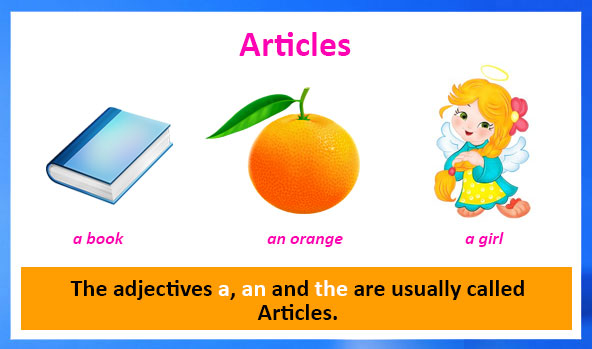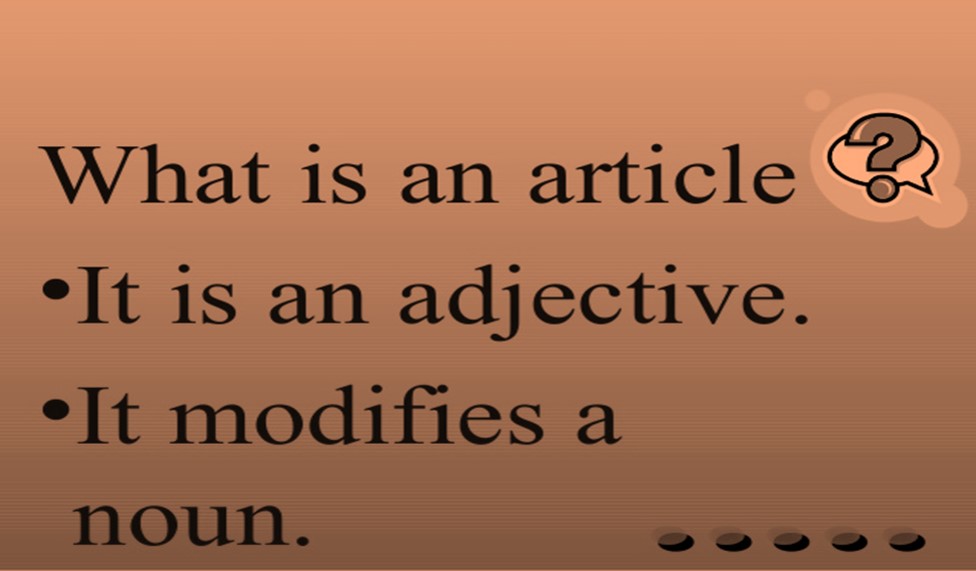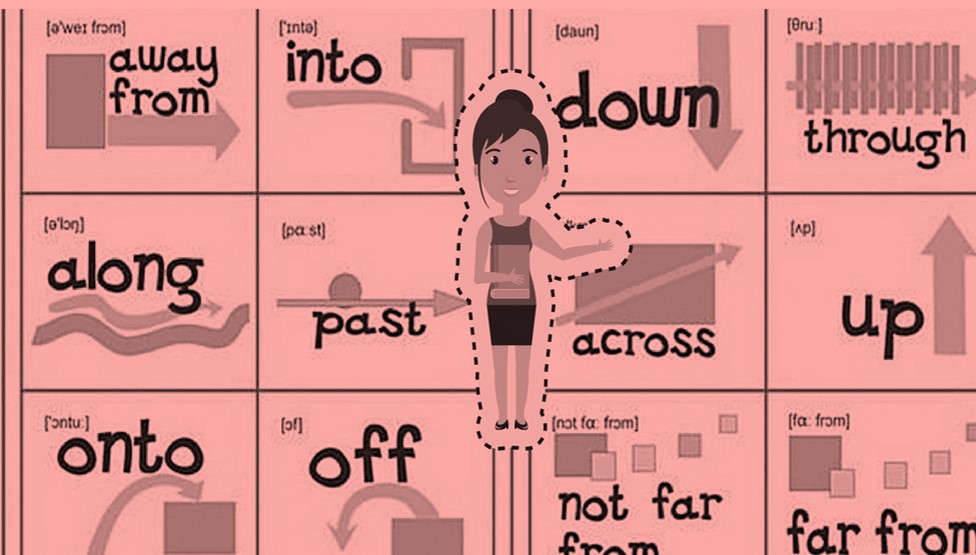
Articles
Articles are words that define a noun as specific or unspecific. It is a word that is used with a noun to specify grammatical definiteness of the noun and in some languages extending to volume or numerical scope.
An article is a word used to modify a noun, which is a person, place, object, or idea. In other words, an article is an adjective, which is any word that modifies a noun. Usually adjectives modify nouns through description, but articles are used instead to point out or refer to nouns.

There are two different types of articles that we use in writing and conversation to point out or refer to a noun or group of nouns:
Definite Article
Indefinite Article
Articles are usually categorized as either definite or indefinite. Within each type, languages may have various forms of each article, due to confirming to grammatical attributes such as gender, number, or case.
Definite Article
This article is the word 'the,' and it refers directly to a specific noun or groups of nouns. For example:
Indefinite Articles
Indefinite articles are the words 'a' and 'an’. Each of these articles is used to refer to a noun, but the noun being referred to is not a specific person, place, object, or idea. It can be any noun from a group of nouns. For example:
Article Usage with Examples:
Properly using a definite article is easy, but it can be tricky when you are trying to figure out which indefinite article to use. The article choice depends on the sound at the beginning of the noun that is being modified. There is a quick and easy way to remember this.
If the noun that comes after the article begins with a vowel sound, the appropriate indefinite article to use is 'an.' A vowel sound is a sound that is created by any vowel in the English language: 'a,' 'e,' 'i,' 'o,' 'u,' and sometimes 'y' if it makes an 'e' or 'i' sound.
Prepositions
Prepositions are short words that usually stand in front of nouns. Even advanced learners of English find prepositions difficult. One preposition in your native language might have several translations depending on the situation. There are hardly any rules as to when to use which preposition.

A preposition is a word used to link nouns, pronouns, or phrases to other words within a sentence. Prepositions are usually short words, and they are normally placed directly in front of nouns.
Examples
There are three types of prepositions, including time prepositions, place prepositions, and direction prepositions.
Time prepositions are those such as before, after, during, and until; place prepositions are those indicating position, such as around, between, and against; and direction prepositions are those indicative of direction, such as across, up, and down. Each type of preposition is important.
Recap
Q.1 |
I have not seen my sister _______________ last year |
| a) | On |
| b) | In |
| c) | Around |
| d) | Since |
Q.2 |
Their marriage was ______________ because of trust issues. |
| a) | On |
| b) | In |
| c) | Over |
| d) | Of |
Q.3 |
I travelled all the way _______________ Russia to see the show. |
| a) | From |
| b) | Since |
| c) | Before |
| d) | In |
Q.4 |
The police chased the thief ______________ the streets. |
| a) | Since |
| b) | Through |
| c) | During |
| d) | Beyond |
Q.5 |
I am worried ________the exam because I am not well prepared. |
| a) | Of |
| b) | On |
| c) | To |
| d) | About |
Q.6 |
Ritika was texting her friend ___________we were watching TV. |
| a) | Until |
| b) | Of |
| c) | While |
| d) | For |
Q.7 |
She will leave sometime ___ 8 and 9 am. |
| a) | next to |
| b) | between |
| c) | in |
| d) | on |
Q.8 |
The boutique is open ___ 9am until 5pm. |
| a) | at |
| b) | on |
| c) | from |
| d) | for |
Q.9 |
They should be ready for the party___ 20 minutes. |
| a) | in |
| b) | on |
| c) | by |
| d) | to |
Q.10 |
I don't want to stay ___ home tomorrow. |
| a) | at |
| b) | to |
| c) | of |
| d) | in |
Your Score: 0/10
Yearlong program for Olympiads preparation & to build necessary skills for future.
Explore More
Time to mark your calendar with the upcoming Olympiads exam schedule.
Explore More
Take your Olympiad preparation to next-level by taking LIVE Classes.
Explore More
Assess your performance by taking topic-wise and full length mock tests.
Explore More
Online tuitions for international compeitions like SASMO, SEAMO, etc for Grades 1-11.
Explore More